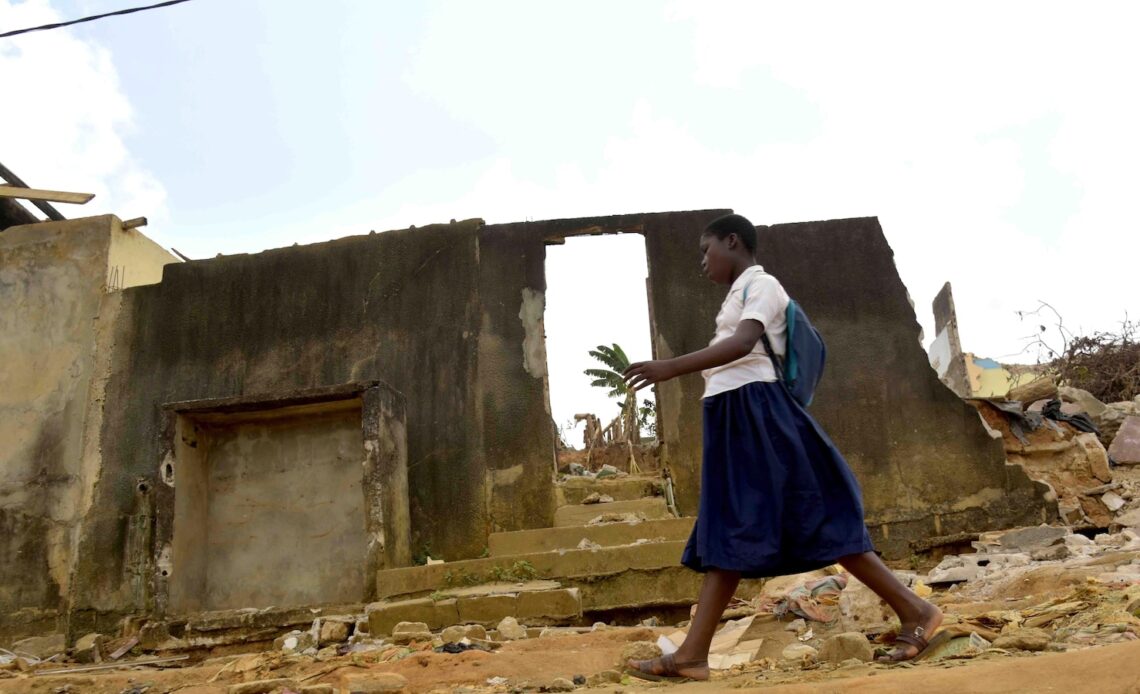ABIDJAN, Ivory Coast — Dame Touré rushed to quickly gather what she could as bulldozers rolled into her neighborhood in Ivory Coast’s fast-growing economic hub of Abidjan. Her three children joined her, stuffing plastic bags with clothes and whatever other items they could grab, before their home was reduced to rubble as armed security forces looked on.
The Touré home was among hundreds crushed in a February wave of demolitions targeting Abidjan’s underdeveloped areas.
The government says it’s because of public health concerns as the poor areas — built along a lagoon in this port city of 6.3 million on West Africa’s southern coast — suffer deadly floods during the rainy season. More than 300 people have been killed since 2005 and officials say the deluges become breeding grounds for water-borne and other diseases.
“My children and I now sleep under the sun,” said Touré, 50. “We don’t know where to go.”
Demolitions in low-income neighborhoods are nothing new in Abidjan, where rapid urbanization has led to a population boom and housing shortages, with nearly one in five Ivorians residing in the city. It’s a challenge in many parts of Africa where economic woes pushed more people into cities in search of better opportunities, straining an already overstretched infrastructure.
However, the latest Abidjan demolition — mainly in impoverished suburbs in the Gesco and Sebroko districts — is one of the largest in years, with an estimated hundreds of thousands of residents affected since it began in late January. Evicted families and rights groups say that this time, it’s being done without prior notice or compensation.
Analysts say many African governments struggle to manage population explosions in cities and meet growing infrastructure needs. Chimezie Anajama, a policy researcher and founder of Blooming Social Pen development nonprofit, says few administrations have managed to solve the developmental problem.
“There must be a strong commitment by different African governments to come up with creative solutions to address the infrastructure gaps in African cities,” Anajama said.
Local authorities have defended the demolitions, and say relocations of families left homeless to safer areas has started.
Some 35% of Ivorians are poor. Water shortages are a daily curse, with many forced to fetch water from streams for their daily needs. The country has also had to contend with other challenges, such as jihadi attacks that have spread to coastal states…
Click Here to Read the Full Original Article at ABC News: Business…

